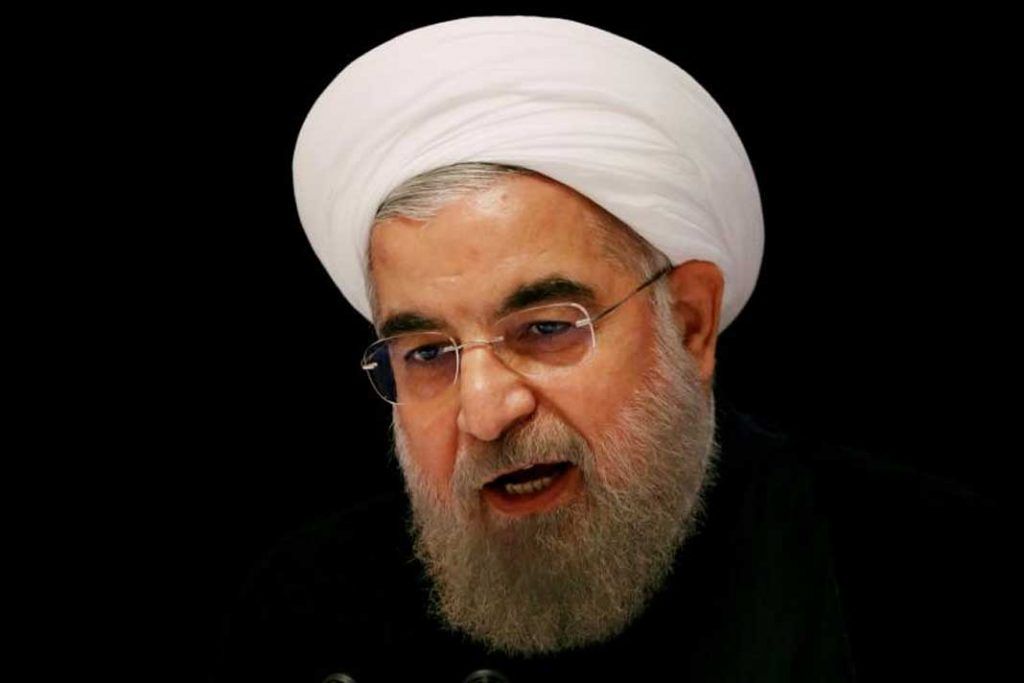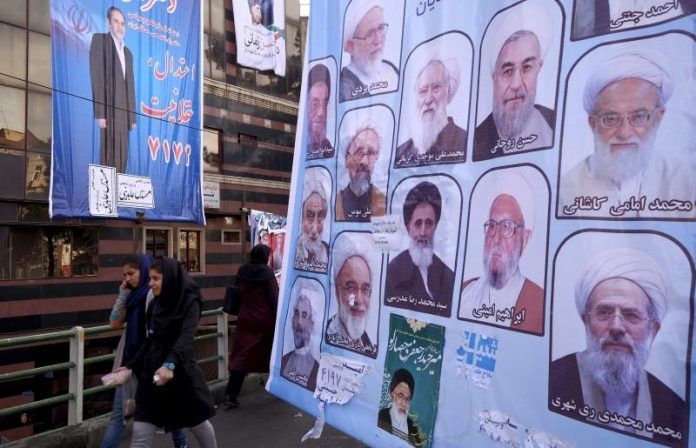May 16, 2017
By Babak Dehghanpisheh
BEIRUT (Reuters) – More than 60 “violations” linked to Friday’s presidential and regional elections in Iran have occurred and two people have been arrested, the judiciary said, at a time of mounting tension between moderate and hardline factions.
President Hassan Rouhani remains the narrow favourite for a second term thanks to Iran’s re-engagement with the world after the lifting of sanctions, but has been hammered by hardline foes over his failure to rehabilitate the economy.
Judiciary spokesman Gholamhossein Mohseni Ejei said on Tuesday the electoral infractions were committed by “governors, county chiefs, district chiefs and the heads of government offices”, according to judiciary news site Mizan.
Mohseni Ejei said the two arrests arose from an attempt by an election candidate’s campaign office to steal documents pertaining to a rival.
No details were given about the other violations, though Mohseni Ejei said they were being pursued in the courts.
It is rare for Iranian officials to publicly discuss political irregularities, particularly before elections.

But sensitivity to allegations of fraud has risen since widespread unrest erupted over the disputed outcome of the 2009 presidential election in which dozens of people were killed and hundreds arrested, according to human rights groups.
Tensions between moderate and hardline political factions have escalated in the run-up to Friday’s election as top candidates have resorted to unusually caustic criticism of each other, a rarity in Iranian political discourse.
The May 19 election is shaping up primarily as a contest between Rouhani, a pragmatist who has the Islamic Republic’s relations with the West and sought to liberalise Iranian society, and Ebrahim Raisi, a hardline conservative Shi’ite cleric who served in the hardline judiciary for many years.
Rouhani has criticised Raisi’s past as a senior prosecutor in the 1980s when thousands of jailed dissidents were executed. Raisi and other hardliners have accused Rouhani of tolerating corruption and mismanaging the economy, charges he denies.
At a campaign appearance in the northwestern city of Zanjan on Tuesday, Rouhani also upbraided the Islamic Revolutionary Guard Corps (IRGC), Iran’s elite and most powerful military and security force, suggesting it was drumming up support for Raisi even though he did not directly name the group.
“Don’t go to the rural areas and lie to people,” Rouhani was quoted by the Iranian Labour News Agency (ILNA) as saying. “Don’t gather people with buses. Don’t give them lunch at military bases.”
In previous election campaigns the IRGC summoned the Basij, its volunteer paramilitary force, to help transport supporters to polling sites, analysts say.
(Reporting by Babak Dehghanpisheh; editing by Mark Heinrich)


